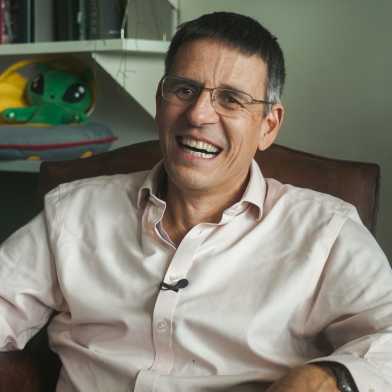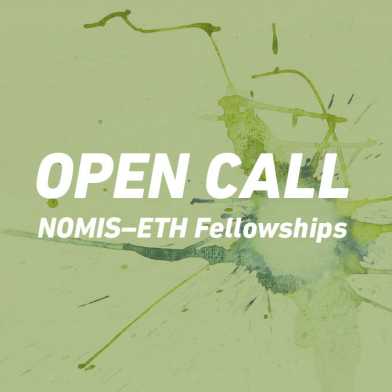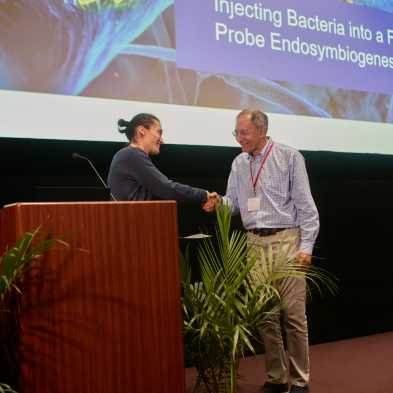News
Exploring the Origins of Life: A Holistic Perspective

At the recent COPL Colloquium, John Sutherland presented a compelling vision for unraveling one of science’s most profound mysteries: the origin of life. His talk emphasized that understanding life’s beginnings requires more than isolated experiments – it demands a holistic approach that bridges biology and chemistry.
Three research projects selected for financial support

The Centre for Origin and Prevalence of Life is pleased to announce the selection of three new research projects for financial support in 2025. These projects span topics from the deep origins of life to planetary habitability and engage teams from multiple disciplines.
Welcoming the 2025 NOMIS–ETH Fellows

In early October, the Centre for Origin and Prevalence of Life at ETH Zurich welcomed the new NOMIS–ETH fellows, Dr. Thomas Drant and Dr. Antonin Affholder, who presented their ongoing research projects and visions for the years ahead. The event highlighted two complementary perspectives on the origins and evolution of life – from the chemistry of early Earth to the planetary conditions that shape biospheres.
How a Swiss man’s discovery changed astrophysics

Thirty years ago, Swiss physicist Didier Queloz discovered the first planet outside our solar system, revolutionising astrophysics. What the discovery has brought him and why he still hasn’t had enough.
Minute witnesses from the primordial sea

Researchers at ETH Zurich have been able to measure - for the first time - how the amount of dissolved organic carbon in the sea has changed over geological time. The results reveal that our explanations of how the ice ages and complex life forms came about are incomplete.
Exoplanets are not water worlds

There is much less water on the surfaces of distant planets outside our solar system than previously thought. These exoplanets do not have thick layers of water, as was often speculated. That’s the conclusion of an international study led by ETH Zurich.
Open Call for NOMIS–ETH Postdoctoral Fellowships

The 2025 call for applications for the NOMIS–ETH Fellowship Programme
within the Centre for Origin and Prevalence of Life is open. Researchers
are invited to apply until 7 November 2025, at 17:00 Zurich local time.
Gabriel Giger awarded Origins Federation PhD Prize

We congratulate Dr. Gabriel Giger on being awarded the 2025 PhD Prize by the Origins Federation for his outstanding doctoral research conducted at ETH Zurich under the supervision of COPL member Prof. Julia Vorholt.